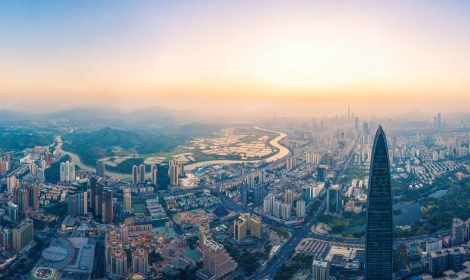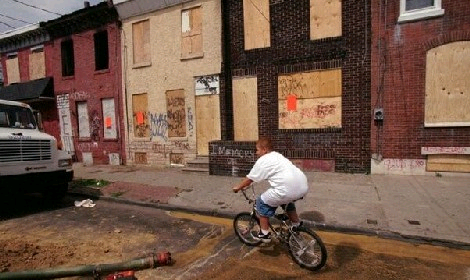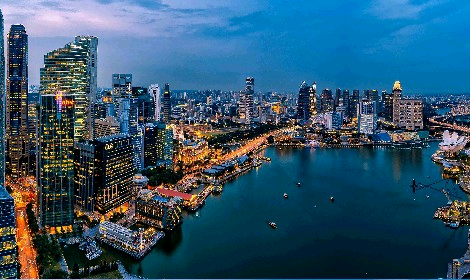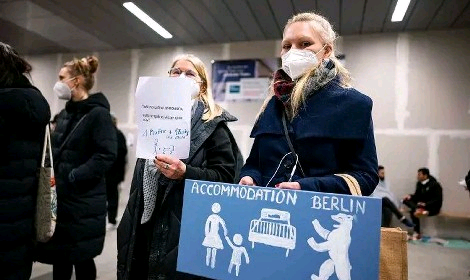国外QA:为什么你要因为高昂的生活费用而在大城市贫穷的生活着,甚至可能无家可归,你去一个拥有相同类型工作的农村小镇上不是更好吗?
正文翻译
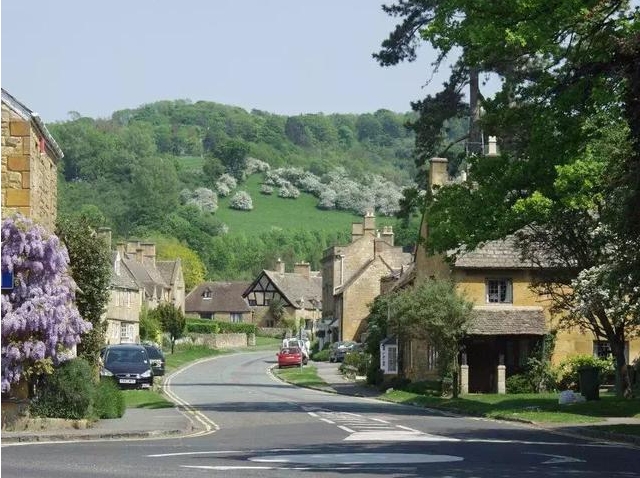
Why would you live in a huge city in poverty because of high living expenses or even be homeless, when you could manage much better in a small rural town in the country with the same type of job?
为什么你要因为高昂的生活费用而在大城市贫穷的生活着,甚至可能无家可归,你去一个拥有相同类型工作的农村小镇上不是更好吗?

Why would you live in a huge city in poverty because of high living expenses or even be homeless, when you could manage much better in a small rural town in the country with the same type of job?
为什么你要因为高昂的生活费用而在大城市贫穷的生活着,甚至可能无家可归,你去一个拥有相同类型工作的农村小镇上不是更好吗?
评论翻译
K. Sonyka
With their tiny and often poor tax bases, small towns offer little to no assistance for low-income people, and even fewer niceties. Job training programs and incentives for employers? Nope. Housing assistance? Not really. Charitable assistance (food, clothes, etc)? Not much beyond the local church maybe, nothing like what you’d see in a city. Small town schools aren’t as well funded, which means you have to fill in the gap or just leave your kid’s education gappy; that’s a cost (that compounds).
小城镇的税收来源很少而且很穷,几乎不能为低收入群体提供任何援助,哪怕一点点都不行。
雇主的职业培训计划和激励措施?没有。
住房补助?没有
慈善援助(食物、衣服等)?除了当地的教堂有点,你在其他大城市看到的几乎没有。
小镇学校的资金不足,这意味着你必须填补缺口,或者让孩子的教育成为缺口。
这些加起来都是成本。
Want to take your child to a museum or park? Tons of free options in cities, not so much in small towns. (As a kid in NYC I got to go to the beach, swimming pools, ice skating, golf, tennis, more museums than I can count, and the opera— all public, all free or nearly free. With a single parent, none of that would have been possible otherwise.) When it was deadly cold the city provided places to get warm, when it was deadly hot the city provided public places to get cool, when hurricanes came the city provided shelters. Not for the homeless, for everyone. For whatever reason. In a small town you’re on your own.
想带孩子去博物馆或公园?在城市里有很多免费的选择,而在小城镇却没有那么多。
当我还是纽约市的一个孩子时,我去了海滩、游泳池,去滑过冰,打过高尔夫、网球,去过数不清的博物馆,还去听了歌剧——全部都是公共场所,全部免费或几乎免费。在单亲家庭成长,如果不是在大城市,这些基本不可能实现。
当天气非常寒冷时,城市提供了取暖的地方,当天气非常炎热时,城市为公众提供了凉爽的地方,而当飓风来临时,城市则提供了避难所。不是为无家可归的人,而是为所有人。不管出于什么原因。在一个小镇上,你只能靠自己。
Believe it or not, housing is often better in cities. I’ve seen rentals in small towns that weren’t suitable for human habitation by city standards— windowless units, no hot water, partial roofs, whatever. In cities the basic housing laws tend to be enforced. In a small town you’re probably going to need a vehicle, and gas, maintenance, and insurance seriously add up. Cities have public transportation, and typically it’s less than half the cost. If you get sick, you’ll have a lot more no- and low-cost medical options in a city than in most small towns. Got addiction problems? Most cities have programs to help you. Might not be the greatest, but most small towns don’t have that at all.
And so on. Overall, city taxes go further than small-town taxes, and that means every resident gets more, for less. When you don’t have much to begin with, it makes a big difference.
信不信由你,城市里的住房往往更好。我在小城镇见过以城市标准不适合人类居住的出租屋——没有窗户,没有热水,只有一部分屋顶,等等。在城市,基本住房法往往会得到执行。
在一个小镇上,你可能需要一辆车,而汽油、维护和保险加在一起就很贵了。城市有公共交通,而且通常不到这个成本的一半。
如果你生病了,在城市里你会有比大多数小城镇更多的免费和低成本的医疗选择。
有成瘾问题?大多数城市都有可以为你提供帮助的项目。可能不是最棒的,但大多数小镇根本没有。
等等等等。总的来说,城市得到的税收比小城镇更多,这意味着每个居民都能以更低的价格获得更多。当你一开始没有太多东西的时候,它会产生很大的不同。
Also not to be overlooked: cities have rich people, and rich people need services. That means there are a lot more not-quite-so-low-wage jobs than in small towns. Nanny, driver, and hotel housekeeper jobs won’t make anyone rich, but they’re a lot better than Quik Stop clerk or minimum-wage factory worker.
同样不容忽视的是:城市有富人,富人需要服务。这意味着,与小城镇相比,有更多不那么低工资的工作。保姆、司机和酒店管家的工作不会让任何人变得富有,但他们比 Quik Stop 店员或最低工资的工厂工人要好得多。
Ke'Aun
Okay, so I've actually been poor in a big city (NYC) and in a small town (in North Carolina).
If you have to be poor in one of them, you pick the big city every time.
There is NO money in poor small towns. There are practically NO jobs. Everyone knows everyone so small towns are extremely clannish -- if you don't know the right people or are seen as an outcast in some way, you will not advance.
Big cities have more money. They have more jobs. No one knows or cares about anyone, so anyone can usually get something. The opportunity for economic advancement in the cities so far outstrips that in the small towns that it's not even funny.
好吧,不管是在大城市(纽约)或小镇(北卡罗来纳州),我都很穷。
如果你必须在其中一个地方贫穷的生活,你往往会选择大城市。
贫穷的小城镇里没有钱。实际上没有工作。每个人都认识每个人,所以小城镇都非常氏族化——如果你不能认识合适的人,或者在某种程度上被视为弃儿,你就不会进步。
大城市有更多的钱。他们有更多的工作。没有人知道或关心任何其他人,所以任何人通常都能得到一些东西。
到目前为止,城市的经济发展机会超过了小城镇,这一点也不奇怪。
My mom and I chose to sleep on my grandparents floor in the projects rather than return to small town poverty. We gave that small town a shot for a single year and ran out of there as fast as we could, right back to the inner city.
There is a reason so many small towns in the US are shrinking.
There is a reason why across the planet poor people flock from the countryside to the cities, rather than vice-versa.
You want money? Social advancement? A chance to better your station?
You get yourself to the city.
所以,因为上面那些原因,我和妈妈选择睡在爷爷奶奶家的地板上,而不是回到小镇上贫困。我们在那个小镇尝试了一年,然后以最快的速度离开了那里,回到了内城。
美国如此多的小城镇都正在萎缩,这是有原因的。
全球各地的穷人从农村涌向城市,也是有原因的,而不是相反。
你想要钱吗?想要感受社会进步吗?想要有机会改善你的身份吗?
去城市吧。
Willem
It’s very interesting to read this perspective in the US context. Here in Europe, the answer to that question wouldn’t be as clearly in favor of cities.
在美国背景下阅读这一观点非常有趣。在欧洲,这个问题的答案不会非常明确的指向城市。
Due to the relatively small size of most European countries and decent public transport, commuting from rural areas to big cities is feasible. I grew up in a rural community. But rural here meant 40 minutes by train to the nearest university town, not ‘in a remote corner of Dakota’.
Even if you don’t fancy a commute, most rural parts of Europe experience serious labor shortages. In countries like Germany, the Netherlands or Belgium, manufacturing firms are generally concentrated in rural areas. Such firms offer excellent pay and security even to relatively low-skilled workers.
1、由于大多数欧洲国家的面积相对较小,公共交通也不错,从农村地区通勤到大城市是可行的。我在农村长大。但这里的乡村坐火车40分钟就能到达最近的大学城,不像“达科他州的偏远角落”。
2、即使你不喜欢通勤,欧洲大多数农村地区也面临着严重的劳动力短缺。在德国、荷兰或比利时等国家,制造企业通常集中在农村地区。这些公司甚至为技术水平相对较低的工人提供了良好的薪酬和保障。
Pay differentials between urban and rural areas certainly exist, but aren’t as pronounced as they are in the US - especially for poorer people. High minimum wages, industry-wide collective bargaining agreements and such like ensure that large pay gaps between rural and urban areas only become apparent once you hit ‘higher-end’ occupations. And even there, the modest size of European countries ensures that rural employers cannot fall too far behind urban competitors. At some point, your workers will accept a one hour commute to the nearest city to get better pay.
Cities face housing shortages, mainly due to restrictive planning rules and competition for housing from universities, colleges and their associated ecosystems (spin-offs etc.). Even ‘ghetto-ish’ parts of successful cities may have significantly higher housing costs than affluent rural areas.
A deep-seated cultural obsession with home (and garden!) ownership in most of Europe means that, if and when poorer people make it to the middle class, they will prefer buying a home in an affordable rural or suburban area over renting in an expensive city.
3、城市和农村地区之间的工资差距当然存在,但并不像美国那样明显,尤其是对穷人来说。较高的最低工资、全行业集体谈判协议等确保了只有当你从事“高端”职业时,农村和城市地区之间的巨大薪酬差距才会显现出来。即使是“高端”职业,欧洲国家的适度规模也确保了农村雇主不会远远落后于在城市的竞争对手。因为必要的时候,你的员工会接受一小时的通勤跑到最近的城市,以获得更高的工资。
4、城市面临住房短缺,主要是由于限制性的规划以及大学、学院及其相关生态系统(衍生产品等)对住房的竞争。即使是成功城市的“贫民区”,其住房成本也可能比富裕的农村地区高得多。
5、在欧洲的大部分地区,对住房(和花园!)所有权有着根深蒂固的文化痴迷,这意味着如果穷人进入中产阶级,他们更喜欢在负担得起的农村或郊区买房,而不是在昂贵的城市租房。
The notable exception to this rule are poorer members of immigrant communities, who often choose to stay in bigger cities to maintain proximity to their community. These people would likely enjoy a higher material quality of life if they left for more rural pastures, but they - probably not unreasonably - feel that the benefits of a close-knit community outweigh those of a nicer home.
这条规则的一个显著例外,是移民社区中较贫穷的成员,他们经常选择留在大城市,以保持与当地群体的距离。如果这些人去更多的农村牧场,他们可能会享受更高的物质生活质量,但他们觉得一个紧密团结的群体的好处大于一个更好的家的好处,这可能不无道理。
Andrei Ma
UK perspective here: (edited) On reflection, I’m not sure whether the “American” or “European” perspective is more applicable here!
First, there is a certain cutoff of “smallness”: settlements smaller than this cutoff will have hardly any job opportunities and the people you will find living there, depending on the the perceived “poshness” of the place, will be (1) families on benefits, (2) retirees and rich people with second homes, or (3) families that have lived there for several generations - either farmers or owners of local small businesses. There is no scope for career advancement or wealth generation in any of these places, unless you’re *already* wealthy and choose to invest in property and rent it out as an Airbnb!
这里是英国视角:仔细想想,我不确定是“美国”视角更适用于英国,还是“欧洲”视角更适用!
首先,“小”有一个特定的界限:小于这个界限的定居点,几乎没有任何工作机会。你会发现,住在那些地方的人,根据居住环境的“豪华”程度,都是:
1、享受福利的家庭
2、退休人员和有第二套住房的富人
3、在那里生活了几代人的家庭,要么是农民,要么是当地小企业的老板。
在这些地方都没有职业发展或财富产生的空间,除非你已经很富有,并选择投资房产,并将其作为“度假屋”出租!
On the other hand, there are many towns/cities with a population between 50000 and 200000 (which may or may not be “small” depending on your perception!) that clearly have untapped potential, much lower costs of living than London, and are big enough to avoid the sort of “everyone knows everyone, you’re not one of us” village mentality.
(Addendum) Second, I’m not aware of there being any significant amount of “manufacturing” in the parts of the UK that are considered genuinely rural by the people who live there. Again, what you described *might* apply to the “population 50000–200000” towns (only to a limited degree, because British manufacturing is dying a slow and painful death), but not to “rural Britain”.
另一方面,有许多城镇的人口在5万至20万之间(根据你的看法不同,这些城镇可能“小”,也可能不“小”!),它们显然具有未开发出来的潜力,生活成本比伦敦低得多,而且足够大,可以避免那种“人人都认识彼此,你不是我们中的一员”的乡村心态。
第二方面,我从来都不知道,那些被当地居民视为真正农村地区的地方有任何大量的“制造业”。同样,楼上所描述的情况,可能适用于“人口5万至20万”的城镇(只是在有限的程度上才是如此,因为英国的制造业正在缓慢而痛苦地消亡),但不适用于“英国农村”。
(Addendum 2) Finally, speaking of the death of British manufacturing… A lot of these “population 50000–200000” towns formerly depended on manufacturing for their survival. With the demise of manufacturing, unemployment and social deprivation in many of these places have shot up. I wrote about “untapped potential” earlier but there’s another side of the coin. If you wanted to open a small business in one of those places, you can probably do so very easily with lots of empty shop fronts to choose from, relatively cheap rents and little competition. But then, you might not get any business because the local clientele are either too deprived to afford your goods or too stuck in their ways to appreciate whatever novelty you’re offering. There’s a reason why there are so many empty shop fronts after all! Choose your small town/city carefully (there are a few nice ones, but they also come with high costs of living, snooty people and lots of tourists resulting in an explosion of Airbnbs and soaring rents… you just can’t win here).
最后,谈到英国制造业的消亡……许多“人口5万至20万”的城镇以前依靠制造业生存。随着制造业的消亡,这些地方的失业率和社会贫困率急剧上升。我早些时候写过“未被开发出来的潜力”,但硬币还有另一面。如果你想在其中一个地方开一家小企业,你可能可以很容易地做到这一点,因为有很多空店面可供选择,租金相对低廉,几乎没有竞争。但是,你可能不会得到任何生意,因为当地的顾客要么太穷了,买不起你的商品,要么只想欣赏欣赏你提供的新奇事物。毕竟,有这么多空店面是有原因的!
仔细选择你的小镇/城市(有一些不错的,但它们也有高昂的生活成本、傲慢的人和大量的游客,导致“度假屋”激增和租金飙升……你在这里无法获胜)。
So… I wouldn’t say the UK situation is the “complete opposite” of what Ke’Aun said. Perhaps a bit less polarised, with more opportunity in slightly smaller towns and cities, but definitely not the opposite, and a high proportion of young people here do go to big cities to “seek their fortunes” straight out of uni. Sadly, there isn’t a lot of “fortune” to be gained in the UK anymore; this is not a land of opportunity; but perhaps there’s still a bit more opportunity in London than in, say, Great Yarmouth. Or try a large city that isn’t London, maybe? Newcastle for example…
Final note: “affluent rural Britain” (aka the land of second homes and Airbnbs) is surprisingly expensive. Much more so than big cities that aren’t London.
所以……我不会说英国的情况与楼上所说的“完全相反”。也许没有那么两极分化,在稍小的城镇有更多的机会,但绝对不是相反,这里有很大一部分年轻人从大学毕业后就去大城市“寻找财富”。可悲的是,在英国已经没有多少“财富”可赚了。这不是一片充满机遇的土地。但也许在伦敦还有比在大雅茅斯更多的机会。或者去一个不是伦敦的大城市试试?比如:纽卡斯尔……
最后一点:“富裕的英国农村”(也被称为第二套住房和“度假屋”之地)生活成本惊人地昂贵。比那些不是伦敦的大城市要贵得多。
Tom Williams
Picturesque rural areas here in the USA is getting very expensive also.
美国风景如画的农村地区也变得非常昂贵。
Tom Williams
I’ve been retired for a year now and live in a top-10 most populated city in the USA. I’ve never been married, no kids, and live alone. Living where I am now has been getting on my nerves for quite some time. Moving to a small town (in which I have been researching) appeals to me. But I’m scared about having to relocate and doing it alone.
This city I’m in now is very costly and I can’t afford to stay in retirement here. I feel like I need some help in relocating but having difficulty finding someone to give me some guidance. I feel the need to know someone at a place where I would like to move to.
我已经退休一年了,住在美国人口最多的十大城市。我从未结婚,没有孩子,独自生活。一段时间以来,住在我现在的地方一直让我很紧张。搬到一个小镇(我一直在研究这个小镇)对我很有吸引力。但我害怕搬迁,更害怕独自一人搬迁。
我现在所在的这个城市非常昂贵,我不能在这里过退休生活。我觉得我在搬迁时需要一些帮助,但很难找到人给我一些指导。我觉得有必要在一个我想搬到的地方认识一个人。
Lee H. Christof
I’ve lived in large cities, small towns and rural areas. Small towns win out for me. Rural areas can be nice but has it’s disadvantages. I would never go back to live in a large city. They are fine to visit, but not live.
我住过大城市、小城镇和农村地区。小城镇对我来说是有利的。农村地区虽然不错,但也有缺点。我再也不会回到大城市生活了。它们适合参观,但不适合居住。
Kevin Cameron
I lived in a small town in Japan. I had my own business that folded with COVID. I could not get another job partly because I did not have family, but more because I have a masters degree - not in spite of it. No one would hire me because they all knew that I was “over qualified”.
When I first moved there with my wife (who also had a masters degree from the most prestigious University in Japan) it took several years for people to understand why we were even there when most people out age wanted to get out.
我住在日本的一个小镇上。我自己的生意因新冠肺炎而倒闭。我找不到另一份工作,部分原因是因为我没有家庭,但更多的原因是因为我有硕士学位——这尽然成了阻碍。没有人会雇佣我,因为他们都知道我“资历过高”。
当我和我的妻子(她也拥有日本最负盛名的大学的硕士学位)第一次搬到那里时,人们花了几年时间才明白为什么我们要搬去那里,而大多数人都想离开。
Nadhiya Athaide
Small towns have no money. And this is especially true here in Iran. Businesses are flocking to the cities and rural incomes are declining significantly.
The money that many individuals in small towns make often puts them just on or below the poverty line. So while they might have cheaper living expenses, they’re not necessarily considered middle class.
In comparison, someone who moves to the city can do the exact same job, and will typically make a higher income while doing so. They might not be middle class, but their income will be much higher than what they’d typically make in a small town.
One of my childhood friends (Azraa) was an English teacher in a small city called Darian for a few years. She made a liveable wage but it was still quite low and she was living lower middle class. After moving back to Shiraz, her income increased a good 3–to 4x times. Now, she lives comfortable middle class, doing the exact same job, despite increased living expenses.
Wages in a small town vs in a big city can very much determine how you can live and could mean the difference between running water, electricity &, etc. Hence why Iran in particular has a rapidly rising urbanization rate. The rural masses are flooding into the cities at an unprecedented rate.
小城镇没有钱。在伊朗尤其如此。企业纷纷涌向城市,农村收入大幅下降。
许多小城镇的人赚的钱往往使他们处于贫困线以下。因此,尽管他们的生活费用可能更便宜,但他们不能被视为中产阶级。
相比之下,搬到城市的人可以做完全相同的工作,并且在这样做的同时通常会获得更高的收入。他们可能不是中产阶级,但他们的收入会比他们在小镇上的收入高得多。
我儿时的一个朋友(Azraa)在一个叫 Darian 的小城市当了几年英语老师。她挣的工资还可以维持生计,但仍然很低,她生活在中下阶层。当她搬回到设拉子后,她的收入增长了3到4倍。现在,她做着完全相同的工作,却成了生活舒适的中产阶级,尽管生活费用增加了。
小镇和大城市的工资,在很大程度上决定了你的生活方式,也可能意味着自来水、电力等之间的差异。因此,伊朗的城市化率正在迅速上升。农村群众正以前所未有的速度涌入城市。

K. Sonyka
With their tiny and often poor tax bases, small towns offer little to no assistance for low-income people, and even fewer niceties. Job training programs and incentives for employers? Nope. Housing assistance? Not really. Charitable assistance (food, clothes, etc)? Not much beyond the local church maybe, nothing like what you’d see in a city. Small town schools aren’t as well funded, which means you have to fill in the gap or just leave your kid’s education gappy; that’s a cost (that compounds).
小城镇的税收来源很少而且很穷,几乎不能为低收入群体提供任何援助,哪怕一点点都不行。
雇主的职业培训计划和激励措施?没有。
住房补助?没有
慈善援助(食物、衣服等)?除了当地的教堂有点,你在其他大城市看到的几乎没有。
小镇学校的资金不足,这意味着你必须填补缺口,或者让孩子的教育成为缺口。
这些加起来都是成本。
Want to take your child to a museum or park? Tons of free options in cities, not so much in small towns. (As a kid in NYC I got to go to the beach, swimming pools, ice skating, golf, tennis, more museums than I can count, and the opera— all public, all free or nearly free. With a single parent, none of that would have been possible otherwise.) When it was deadly cold the city provided places to get warm, when it was deadly hot the city provided public places to get cool, when hurricanes came the city provided shelters. Not for the homeless, for everyone. For whatever reason. In a small town you’re on your own.
想带孩子去博物馆或公园?在城市里有很多免费的选择,而在小城镇却没有那么多。
当我还是纽约市的一个孩子时,我去了海滩、游泳池,去滑过冰,打过高尔夫、网球,去过数不清的博物馆,还去听了歌剧——全部都是公共场所,全部免费或几乎免费。在单亲家庭成长,如果不是在大城市,这些基本不可能实现。
当天气非常寒冷时,城市提供了取暖的地方,当天气非常炎热时,城市为公众提供了凉爽的地方,而当飓风来临时,城市则提供了避难所。不是为无家可归的人,而是为所有人。不管出于什么原因。在一个小镇上,你只能靠自己。
Believe it or not, housing is often better in cities. I’ve seen rentals in small towns that weren’t suitable for human habitation by city standards— windowless units, no hot water, partial roofs, whatever. In cities the basic housing laws tend to be enforced. In a small town you’re probably going to need a vehicle, and gas, maintenance, and insurance seriously add up. Cities have public transportation, and typically it’s less than half the cost. If you get sick, you’ll have a lot more no- and low-cost medical options in a city than in most small towns. Got addiction problems? Most cities have programs to help you. Might not be the greatest, but most small towns don’t have that at all.
And so on. Overall, city taxes go further than small-town taxes, and that means every resident gets more, for less. When you don’t have much to begin with, it makes a big difference.
信不信由你,城市里的住房往往更好。我在小城镇见过以城市标准不适合人类居住的出租屋——没有窗户,没有热水,只有一部分屋顶,等等。在城市,基本住房法往往会得到执行。
在一个小镇上,你可能需要一辆车,而汽油、维护和保险加在一起就很贵了。城市有公共交通,而且通常不到这个成本的一半。
如果你生病了,在城市里你会有比大多数小城镇更多的免费和低成本的医疗选择。
有成瘾问题?大多数城市都有可以为你提供帮助的项目。可能不是最棒的,但大多数小镇根本没有。
等等等等。总的来说,城市得到的税收比小城镇更多,这意味着每个居民都能以更低的价格获得更多。当你一开始没有太多东西的时候,它会产生很大的不同。
Also not to be overlooked: cities have rich people, and rich people need services. That means there are a lot more not-quite-so-low-wage jobs than in small towns. Nanny, driver, and hotel housekeeper jobs won’t make anyone rich, but they’re a lot better than Quik Stop clerk or minimum-wage factory worker.
同样不容忽视的是:城市有富人,富人需要服务。这意味着,与小城镇相比,有更多不那么低工资的工作。保姆、司机和酒店管家的工作不会让任何人变得富有,但他们比 Quik Stop 店员或最低工资的工厂工人要好得多。
Ke'Aun
Okay, so I've actually been poor in a big city (NYC) and in a small town (in North Carolina).
If you have to be poor in one of them, you pick the big city every time.
There is NO money in poor small towns. There are practically NO jobs. Everyone knows everyone so small towns are extremely clannish -- if you don't know the right people or are seen as an outcast in some way, you will not advance.
Big cities have more money. They have more jobs. No one knows or cares about anyone, so anyone can usually get something. The opportunity for economic advancement in the cities so far outstrips that in the small towns that it's not even funny.
好吧,不管是在大城市(纽约)或小镇(北卡罗来纳州),我都很穷。
如果你必须在其中一个地方贫穷的生活,你往往会选择大城市。
贫穷的小城镇里没有钱。实际上没有工作。每个人都认识每个人,所以小城镇都非常氏族化——如果你不能认识合适的人,或者在某种程度上被视为弃儿,你就不会进步。
大城市有更多的钱。他们有更多的工作。没有人知道或关心任何其他人,所以任何人通常都能得到一些东西。
到目前为止,城市的经济发展机会超过了小城镇,这一点也不奇怪。
My mom and I chose to sleep on my grandparents floor in the projects rather than return to small town poverty. We gave that small town a shot for a single year and ran out of there as fast as we could, right back to the inner city.
There is a reason so many small towns in the US are shrinking.
There is a reason why across the planet poor people flock from the countryside to the cities, rather than vice-versa.
You want money? Social advancement? A chance to better your station?
You get yourself to the city.
所以,因为上面那些原因,我和妈妈选择睡在爷爷奶奶家的地板上,而不是回到小镇上贫困。我们在那个小镇尝试了一年,然后以最快的速度离开了那里,回到了内城。
美国如此多的小城镇都正在萎缩,这是有原因的。
全球各地的穷人从农村涌向城市,也是有原因的,而不是相反。
你想要钱吗?想要感受社会进步吗?想要有机会改善你的身份吗?
去城市吧。
Willem
It’s very interesting to read this perspective in the US context. Here in Europe, the answer to that question wouldn’t be as clearly in favor of cities.
在美国背景下阅读这一观点非常有趣。在欧洲,这个问题的答案不会非常明确的指向城市。
Due to the relatively small size of most European countries and decent public transport, commuting from rural areas to big cities is feasible. I grew up in a rural community. But rural here meant 40 minutes by train to the nearest university town, not ‘in a remote corner of Dakota’.
Even if you don’t fancy a commute, most rural parts of Europe experience serious labor shortages. In countries like Germany, the Netherlands or Belgium, manufacturing firms are generally concentrated in rural areas. Such firms offer excellent pay and security even to relatively low-skilled workers.
1、由于大多数欧洲国家的面积相对较小,公共交通也不错,从农村地区通勤到大城市是可行的。我在农村长大。但这里的乡村坐火车40分钟就能到达最近的大学城,不像“达科他州的偏远角落”。
2、即使你不喜欢通勤,欧洲大多数农村地区也面临着严重的劳动力短缺。在德国、荷兰或比利时等国家,制造企业通常集中在农村地区。这些公司甚至为技术水平相对较低的工人提供了良好的薪酬和保障。
Pay differentials between urban and rural areas certainly exist, but aren’t as pronounced as they are in the US - especially for poorer people. High minimum wages, industry-wide collective bargaining agreements and such like ensure that large pay gaps between rural and urban areas only become apparent once you hit ‘higher-end’ occupations. And even there, the modest size of European countries ensures that rural employers cannot fall too far behind urban competitors. At some point, your workers will accept a one hour commute to the nearest city to get better pay.
Cities face housing shortages, mainly due to restrictive planning rules and competition for housing from universities, colleges and their associated ecosystems (spin-offs etc.). Even ‘ghetto-ish’ parts of successful cities may have significantly higher housing costs than affluent rural areas.
A deep-seated cultural obsession with home (and garden!) ownership in most of Europe means that, if and when poorer people make it to the middle class, they will prefer buying a home in an affordable rural or suburban area over renting in an expensive city.
3、城市和农村地区之间的工资差距当然存在,但并不像美国那样明显,尤其是对穷人来说。较高的最低工资、全行业集体谈判协议等确保了只有当你从事“高端”职业时,农村和城市地区之间的巨大薪酬差距才会显现出来。即使是“高端”职业,欧洲国家的适度规模也确保了农村雇主不会远远落后于在城市的竞争对手。因为必要的时候,你的员工会接受一小时的通勤跑到最近的城市,以获得更高的工资。
4、城市面临住房短缺,主要是由于限制性的规划以及大学、学院及其相关生态系统(衍生产品等)对住房的竞争。即使是成功城市的“贫民区”,其住房成本也可能比富裕的农村地区高得多。
5、在欧洲的大部分地区,对住房(和花园!)所有权有着根深蒂固的文化痴迷,这意味着如果穷人进入中产阶级,他们更喜欢在负担得起的农村或郊区买房,而不是在昂贵的城市租房。
The notable exception to this rule are poorer members of immigrant communities, who often choose to stay in bigger cities to maintain proximity to their community. These people would likely enjoy a higher material quality of life if they left for more rural pastures, but they - probably not unreasonably - feel that the benefits of a close-knit community outweigh those of a nicer home.
这条规则的一个显著例外,是移民社区中较贫穷的成员,他们经常选择留在大城市,以保持与当地群体的距离。如果这些人去更多的农村牧场,他们可能会享受更高的物质生活质量,但他们觉得一个紧密团结的群体的好处大于一个更好的家的好处,这可能不无道理。
Andrei Ma
UK perspective here: (edited) On reflection, I’m not sure whether the “American” or “European” perspective is more applicable here!
First, there is a certain cutoff of “smallness”: settlements smaller than this cutoff will have hardly any job opportunities and the people you will find living there, depending on the the perceived “poshness” of the place, will be (1) families on benefits, (2) retirees and rich people with second homes, or (3) families that have lived there for several generations - either farmers or owners of local small businesses. There is no scope for career advancement or wealth generation in any of these places, unless you’re *already* wealthy and choose to invest in property and rent it out as an Airbnb!
这里是英国视角:仔细想想,我不确定是“美国”视角更适用于英国,还是“欧洲”视角更适用!
首先,“小”有一个特定的界限:小于这个界限的定居点,几乎没有任何工作机会。你会发现,住在那些地方的人,根据居住环境的“豪华”程度,都是:
1、享受福利的家庭
2、退休人员和有第二套住房的富人
3、在那里生活了几代人的家庭,要么是农民,要么是当地小企业的老板。
在这些地方都没有职业发展或财富产生的空间,除非你已经很富有,并选择投资房产,并将其作为“度假屋”出租!
On the other hand, there are many towns/cities with a population between 50000 and 200000 (which may or may not be “small” depending on your perception!) that clearly have untapped potential, much lower costs of living than London, and are big enough to avoid the sort of “everyone knows everyone, you’re not one of us” village mentality.
(Addendum) Second, I’m not aware of there being any significant amount of “manufacturing” in the parts of the UK that are considered genuinely rural by the people who live there. Again, what you described *might* apply to the “population 50000–200000” towns (only to a limited degree, because British manufacturing is dying a slow and painful death), but not to “rural Britain”.
另一方面,有许多城镇的人口在5万至20万之间(根据你的看法不同,这些城镇可能“小”,也可能不“小”!),它们显然具有未开发出来的潜力,生活成本比伦敦低得多,而且足够大,可以避免那种“人人都认识彼此,你不是我们中的一员”的乡村心态。
第二方面,我从来都不知道,那些被当地居民视为真正农村地区的地方有任何大量的“制造业”。同样,楼上所描述的情况,可能适用于“人口5万至20万”的城镇(只是在有限的程度上才是如此,因为英国的制造业正在缓慢而痛苦地消亡),但不适用于“英国农村”。
(Addendum 2) Finally, speaking of the death of British manufacturing… A lot of these “population 50000–200000” towns formerly depended on manufacturing for their survival. With the demise of manufacturing, unemployment and social deprivation in many of these places have shot up. I wrote about “untapped potential” earlier but there’s another side of the coin. If you wanted to open a small business in one of those places, you can probably do so very easily with lots of empty shop fronts to choose from, relatively cheap rents and little competition. But then, you might not get any business because the local clientele are either too deprived to afford your goods or too stuck in their ways to appreciate whatever novelty you’re offering. There’s a reason why there are so many empty shop fronts after all! Choose your small town/city carefully (there are a few nice ones, but they also come with high costs of living, snooty people and lots of tourists resulting in an explosion of Airbnbs and soaring rents… you just can’t win here).
最后,谈到英国制造业的消亡……许多“人口5万至20万”的城镇以前依靠制造业生存。随着制造业的消亡,这些地方的失业率和社会贫困率急剧上升。我早些时候写过“未被开发出来的潜力”,但硬币还有另一面。如果你想在其中一个地方开一家小企业,你可能可以很容易地做到这一点,因为有很多空店面可供选择,租金相对低廉,几乎没有竞争。但是,你可能不会得到任何生意,因为当地的顾客要么太穷了,买不起你的商品,要么只想欣赏欣赏你提供的新奇事物。毕竟,有这么多空店面是有原因的!
仔细选择你的小镇/城市(有一些不错的,但它们也有高昂的生活成本、傲慢的人和大量的游客,导致“度假屋”激增和租金飙升……你在这里无法获胜)。
So… I wouldn’t say the UK situation is the “complete opposite” of what Ke’Aun said. Perhaps a bit less polarised, with more opportunity in slightly smaller towns and cities, but definitely not the opposite, and a high proportion of young people here do go to big cities to “seek their fortunes” straight out of uni. Sadly, there isn’t a lot of “fortune” to be gained in the UK anymore; this is not a land of opportunity; but perhaps there’s still a bit more opportunity in London than in, say, Great Yarmouth. Or try a large city that isn’t London, maybe? Newcastle for example…
Final note: “affluent rural Britain” (aka the land of second homes and Airbnbs) is surprisingly expensive. Much more so than big cities that aren’t London.
所以……我不会说英国的情况与楼上所说的“完全相反”。也许没有那么两极分化,在稍小的城镇有更多的机会,但绝对不是相反,这里有很大一部分年轻人从大学毕业后就去大城市“寻找财富”。可悲的是,在英国已经没有多少“财富”可赚了。这不是一片充满机遇的土地。但也许在伦敦还有比在大雅茅斯更多的机会。或者去一个不是伦敦的大城市试试?比如:纽卡斯尔……
最后一点:“富裕的英国农村”(也被称为第二套住房和“度假屋”之地)生活成本惊人地昂贵。比那些不是伦敦的大城市要贵得多。
Tom Williams
Picturesque rural areas here in the USA is getting very expensive also.
美国风景如画的农村地区也变得非常昂贵。
Tom Williams
I’ve been retired for a year now and live in a top-10 most populated city in the USA. I’ve never been married, no kids, and live alone. Living where I am now has been getting on my nerves for quite some time. Moving to a small town (in which I have been researching) appeals to me. But I’m scared about having to relocate and doing it alone.
This city I’m in now is very costly and I can’t afford to stay in retirement here. I feel like I need some help in relocating but having difficulty finding someone to give me some guidance. I feel the need to know someone at a place where I would like to move to.
我已经退休一年了,住在美国人口最多的十大城市。我从未结婚,没有孩子,独自生活。一段时间以来,住在我现在的地方一直让我很紧张。搬到一个小镇(我一直在研究这个小镇)对我很有吸引力。但我害怕搬迁,更害怕独自一人搬迁。
我现在所在的这个城市非常昂贵,我不能在这里过退休生活。我觉得我在搬迁时需要一些帮助,但很难找到人给我一些指导。我觉得有必要在一个我想搬到的地方认识一个人。
Lee H. Christof
I’ve lived in large cities, small towns and rural areas. Small towns win out for me. Rural areas can be nice but has it’s disadvantages. I would never go back to live in a large city. They are fine to visit, but not live.
我住过大城市、小城镇和农村地区。小城镇对我来说是有利的。农村地区虽然不错,但也有缺点。我再也不会回到大城市生活了。它们适合参观,但不适合居住。
Kevin Cameron
I lived in a small town in Japan. I had my own business that folded with COVID. I could not get another job partly because I did not have family, but more because I have a masters degree - not in spite of it. No one would hire me because they all knew that I was “over qualified”.
When I first moved there with my wife (who also had a masters degree from the most prestigious University in Japan) it took several years for people to understand why we were even there when most people out age wanted to get out.
我住在日本的一个小镇上。我自己的生意因新冠肺炎而倒闭。我找不到另一份工作,部分原因是因为我没有家庭,但更多的原因是因为我有硕士学位——这尽然成了阻碍。没有人会雇佣我,因为他们都知道我“资历过高”。
当我和我的妻子(她也拥有日本最负盛名的大学的硕士学位)第一次搬到那里时,人们花了几年时间才明白为什么我们要搬去那里,而大多数人都想离开。
Nadhiya Athaide
Small towns have no money. And this is especially true here in Iran. Businesses are flocking to the cities and rural incomes are declining significantly.
The money that many individuals in small towns make often puts them just on or below the poverty line. So while they might have cheaper living expenses, they’re not necessarily considered middle class.
In comparison, someone who moves to the city can do the exact same job, and will typically make a higher income while doing so. They might not be middle class, but their income will be much higher than what they’d typically make in a small town.
One of my childhood friends (Azraa) was an English teacher in a small city called Darian for a few years. She made a liveable wage but it was still quite low and she was living lower middle class. After moving back to Shiraz, her income increased a good 3–to 4x times. Now, she lives comfortable middle class, doing the exact same job, despite increased living expenses.
Wages in a small town vs in a big city can very much determine how you can live and could mean the difference between running water, electricity &, etc. Hence why Iran in particular has a rapidly rising urbanization rate. The rural masses are flooding into the cities at an unprecedented rate.
小城镇没有钱。在伊朗尤其如此。企业纷纷涌向城市,农村收入大幅下降。
许多小城镇的人赚的钱往往使他们处于贫困线以下。因此,尽管他们的生活费用可能更便宜,但他们不能被视为中产阶级。
相比之下,搬到城市的人可以做完全相同的工作,并且在这样做的同时通常会获得更高的收入。他们可能不是中产阶级,但他们的收入会比他们在小镇上的收入高得多。
我儿时的一个朋友(Azraa)在一个叫 Darian 的小城市当了几年英语老师。她挣的工资还可以维持生计,但仍然很低,她生活在中下阶层。当她搬回到设拉子后,她的收入增长了3到4倍。现在,她做着完全相同的工作,却成了生活舒适的中产阶级,尽管生活费用增加了。
小镇和大城市的工资,在很大程度上决定了你的生活方式,也可能意味着自来水、电力等之间的差异。因此,伊朗的城市化率正在迅速上升。农村群众正以前所未有的速度涌入城市。


